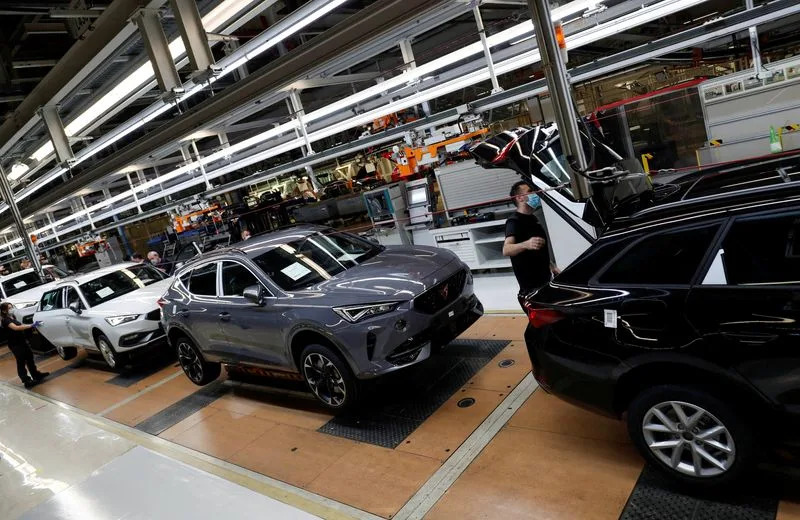Eurozone business growth remained resilient in May but slowed slightly more than expected, as the bloc’s dominant services sector lost some luster while the manufacturing recession deepened, a survey showed Tuesday.
The advance composite reading of the HCOB purchasing managers’ index (PMI), compiled by S&P Global and considered a good indicator of overall economic health, fell to 53.3 points in May from 54.1 in April.
Although it remained above the 50 mark that separates growth from contraction, it was below the Reuters estimate of 53.5.
“Eurozone GDP is likely to have grown in the second quarter thanks to the strong state of the services sector. However, the manufacturing sector is a powerful drag on the momentum of the economy as a whole,” said Cyrus de la Rubia, chief economist at Hamburg Commercial Bank.
With prices continuing to rise strongly and indebted households having to pay higher borrowing costs, overall demand growth slowed sharply. The new orders index fell from 52.5 to 50.4 points.
The service sector PMI index declined from a one-year high in April (56.2) to 55.9, better than the Reuters forecast of a steeper drop to 55.6 points.
Despite the slowdown in new order growth, service sector companies increased their workforces at a strong pace: the employment index came in at 55.0 points, albeit down from April’s 11-month high of 55.6.
Meanwhile, demand for manufactured goods sank, with the industrial PMI falling to 44.6 points in May from the previous reading of 45.8, its lowest level since May 2020, when the COVID-19 pandemic was consolidating its grip on the world. The Reuters poll had forecast a reading of 46.0.
An index measuring output, which feeds into the composite PMI, fell to a six-month low of 46.3 from 48.5.
However, a recovery in supply chains and lower energy prices caused input costs to fall at the fastest pace in more than seven years, allowing factories to cut prices for the first time since September 2020. The producer price index fell from 51.6 to 49.0 points.
This may be good news for monetary leaders at the European Central Bank, who despite embarking on the most aggressive tightening path in their history, have so far failed to bring inflation back to their 2.0% target.
However, prices charged by service sector companies rose faster, with the ECB expected to add another 25 basis points to its deposit rate next month and in July, despite the fact that many of its peers have already paused rate hikes or will do so soon, according to a Reuters poll.
“The ECB will have a headache with PMI price data. This is because selling prices in the services sector actually rose more than in the previous month. It is precisely the price developments in this sector that the ECB is watching with suspicion,” de la Rubia added.

